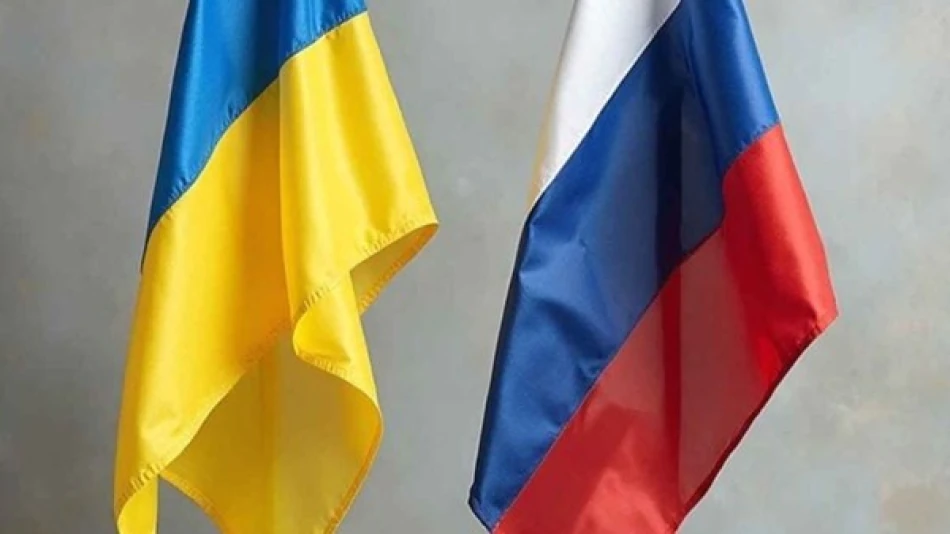
Turkey Unveils Date for Upcoming Russia-Ukraine Negotiations
Russia-Ukraine Peace Talks Resume in Istanbul as War Fatigue Mounts
Russian and Ukrainian delegations are set to begin their third round of direct negotiations Wednesday at Istanbul's Çırağan Palace, marking a critical juncture in diplomatic efforts to resolve a conflict that has reshaped global geopolitics. The talks, facilitated by Turkey's strategic positioning as a neutral mediator, focus on settlement frameworks and prisoner exchanges—suggesting both sides may be testing pathways toward de-escalation after years of devastating warfare.
High Stakes in Historic Venue
The negotiations, scheduled to begin at 7:00 PM Moscow time, represent the first direct diplomatic engagement between the warring parties in over three years. Kremlin spokesperson Dmitry Peskov confirmed Russia's delegation would focus primarily on memorandums of understanding related to settlement terms and continued bilateral exchanges.
Turkey's choice of the opulent Çırağan Palace—a former Ottoman imperial residence—carries symbolic weight. President Erdoğan has positioned Turkey as a crucial bridge between NATO and Russia, leveraging its unique geopolitical stance to facilitate dialogue that Western nations cannot directly broker.
Prisoner Exchanges Signal Pragmatic Progress
The talks have already yielded tangible humanitarian results. Recent prisoner swaps have included young soldiers under 25 and seriously wounded combatants—exchanges that suggest both militaries are prioritizing the return of their most vulnerable personnel. This pragmatic cooperation on humanitarian issues often serves as a foundation for broader diplomatic breakthroughs.
Ukrainian sources indicate their delegation hopes Russia will adopt a "constructive position," diplomatic language that typically signals willingness to make meaningful concessions rather than merely going through procedural motions.
Strategic Implications for Global Markets
Any progress in these negotiations could trigger significant market reactions. Energy markets, particularly European natural gas futures, remain hypersensitive to Russia-Ukraine diplomatic developments. Agricultural commodity prices—given both nations' roles as major grain exporters—could also experience volatility based on negotiation outcomes.
Defense contractors and reconstruction-focused companies are likely monitoring these talks closely. A genuine peace framework would eventually shift focus from military aid to massive rebuilding efforts, potentially worth hundreds of billions of dollars.
Turkey's Diplomatic Gambit
Ankara's mediation role reflects its broader strategy of maintaining relationships with both NATO allies and Russia despite international sanctions. This positioning has allowed Turkey to continue facilitating grain exports through the Black Sea and now positions it as an indispensable diplomatic actor.
Unlike previous failed negotiation attempts in Belarus or other venues, Turkey's approach emphasizes practical outcomes—prisoner exchanges, humanitarian corridors, and economic arrangements—rather than grand political settlements that have historically collapsed.
Realistic Expectations Amid Cautious Optimism
While these talks represent meaningful diplomatic engagement, fundamental territorial and security disagreements remain unresolved. However, the focus on memorandums of understanding suggests both sides are exploring interim arrangements that could reduce immediate tensions without requiring comprehensive political solutions.
The resumption of talks after such an extended hiatus indicates that military stalemates and economic pressures may be creating space for diplomatic alternatives that neither side was previously willing to consider seriously.
Most Viewed News

 Layla Al Mansoori
Layla Al Mansoori






